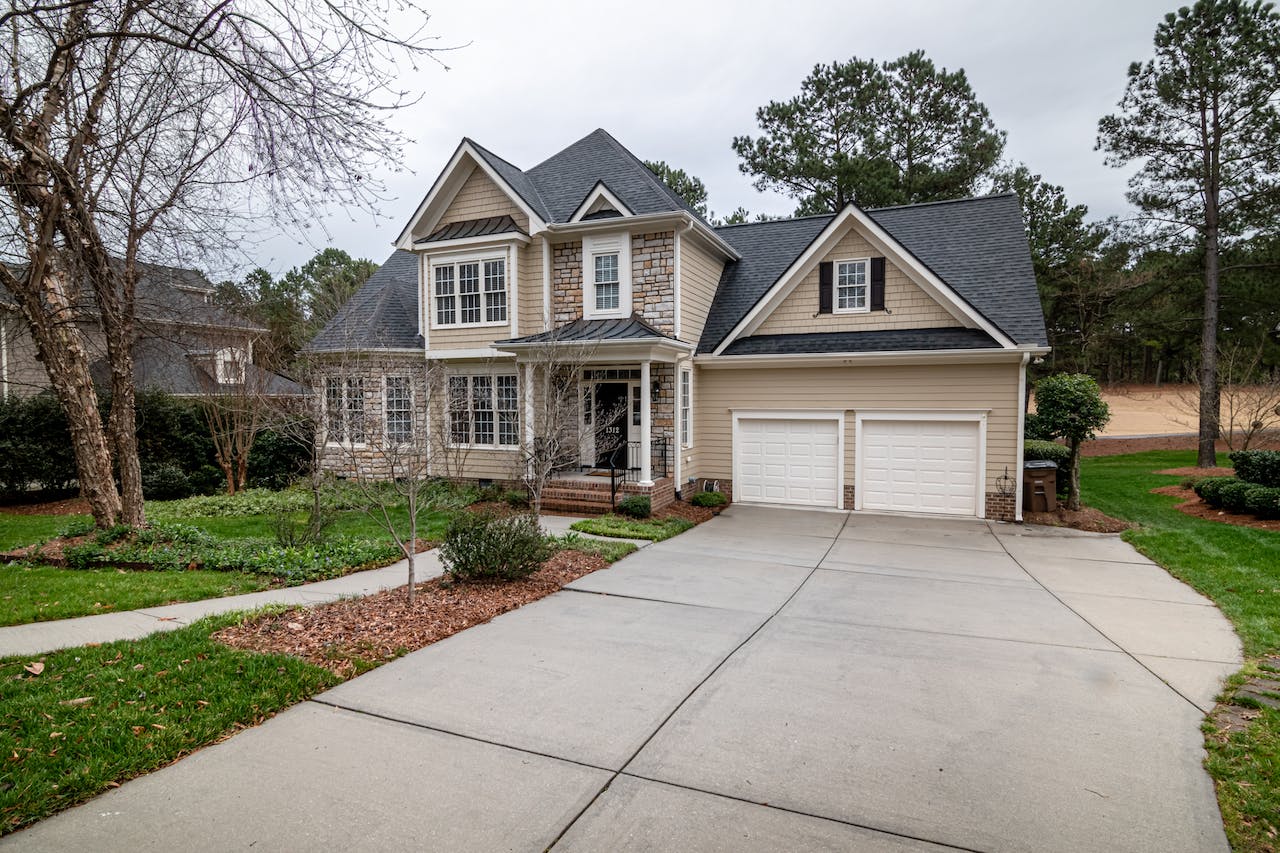What Is Mortgage Insurance?
What is mortgage insurance? It serves as a protective financial measure for lenders, mitigating their risk when borrowers are unable to provide a substantial down payment, typically less than 20% of the home's value.

Morgan Barrons
Jan 28, 2024
When purchasing a house, you most likely anticipate doing a number of things, including shopping around for the cheapest mortgage rates, obtaining a mortgage, and making a down payment. There is, however, a further step that you could be required to take.
In the event that your down payment is less than twenty percent of the total purchase price of your house or if you are obtaining a particular type of mortgage (for example, an FHA loan), you may additionally be required to acquire residential mortgage insurance.
In order to safeguard their financial interests, lenders are required to get mortgage insurance since these are scenarios that involve a greater level of risk. By continuing to read this article, learn more about mortgage insurance, including how it operates and what is mortgage insurance?
Understanding Mortgage Insurance
Mortgage insurance is a type of protection that covers the lender in case the borrower doesn't pay back the loan. Mortgage insurance is intended to safeguard the lender; however, because of the decreased risk, lenders are able to provide loans to borrowers who usually would not be eligible for a mortgage at all, much less one that is cheap.
Since a borrower who invests their own money in their home is less likely to default on payments and allow the bank to foreclose on the property if their home's value declines or their finances deteriorate, lenders typically require a 20% down payment in order for a borrower to be eligible for a mortgage. These two situations occurred during the recession and housing crisis of 2007, which brought attention to how crucial mortgage insurance is.
It should be noted that borrowers who obtain loans backed by the Federal Housing Administration (FHA) pay a mortgage insurance premium (MIP). In contrast, borrowers who obtain conventional loans with smaller down payments pay private mortgage insurance (PMI).
How Is Mortgage Insurance Determined?
Once you apply for a traditional mortgage loan, the lender will consider a few factors in order to determine whether or not they require mortgage insurance. It is not something that happens unavoidably with every loan.
In the first place, they take into consideration the value of your home in comparison to the amount of money you wish to borrow and the amount of money you are able to spare for a down payment.
The difference between the value and the amount of the loan is referred to as the loan-to-value ratio, and it is expressed as a percentage. Based on this proportion, you will be able to assess whether or not you will require mortgage insurance.
Consider the following scenario: you wish to borrow $95,000 to purchase a property that, for the sake of simplicity, costs $100,000. According to this, your loan-to-value ratio would be precisely 95%.
For the lender, this is a scary situation. They may not be able to receive all of their money back if they were forced to sell the home as a consequence of the foreclosure. In this particular scenario, they suggest that you obtain private mortgage insurance for the loan application
Types Of Mortgage Insurance
Private Mortgage Insurance (PMI)
A borrower may be required to purchase private mortgage insurance (PMI) in order to qualify for a traditional mortgage loan. PMI safeguards the lender rather than the borrower, much as other types of mortgage insurance.
PMI is arranged by the lender and is supplied by private insurance providers. There are four typical kinds of private mortgage insurance that you may encounter;
Borrower-Paid Mortgage Insurance
When you achieve 22% equity in your house, the most popular kind of PMI cancels, and you continue to pay an extra monthly charge with your mortgage payments. This insurance can sometimes be canceled with as little as 20% ownership.
Single-Premium Mortgage Insurance
You must pay for this private mortgage insurance in advance. This results in fewer monthly payments, but if you have to relocate and sell your house or refinance it, you can lose the money you spent upfront.
Lender-Paid Mortgage Insurance
With lender-paid mortgage insurance, your lender will cover your PMI. However, you will still be responsible for the charges because these loans often have higher mortgage interest rates.
Split-Premium Mortgage Insurance
With split-premium mortgage insurance, you contribute to the cost of PMI at closing and defer the remaining amount to your monthly payments.
Qualified Mortgage Insurance Premium (MIP)
A qualifying mortgage insurance premium, which offers a comparable kind of protection, is necessary when you obtain a mortgage guaranteed by the Federal Housing Administration (FHA) of the United States.
MIPs are subject to a variety of regulations, one of which is that it is mandatory for all individuals who have an FHA mortgage to purchase this kind of insurance, regardless of the amount of their initial deposit.
Mortgage Title Insurance
The mortgage title insurance policy protects the policyholder against financial loss in the event that a sale is subsequently declared invalid due to an issue with the title. In the event that it is discovered at the time of the sale that the property is owned by someone other than the seller, mortgage title insurance will protect the beneficiary from any damages that may occur.
Title searches are carried out by a representative, such as a lawyer or an employee of a title business, prior to the closure of a mortgage transaction. The purpose of this procedure is to discover any liens that have been imposed on the property that would restrict the owner from selling there.
A title search also serves the purpose of confirming that the seller is the owner of the property that is being sold. Even if a comprehensive search is conducted, it is reasonably uncommon for significant pieces of evidence to be overlooked when the information is not consolidated.
Mortgage Protection Life Insurance
It is common practice to provide borrowers with mortgage protection life insurance as they are filling out the necessary papers to initiate a mortgage. When this insurance is given to a borrower, the borrower has the option to refuse it, but in order to validate your choice, you may be forced to sign a number of documents and disclaimers.
The purpose of this additional documentation is to demonstrate that you are aware of the dangers that are connected with obtaining a mortgage. It is possible to get mortgage life insurance with either a declining-term payout (the payout decreases as the mortgage debt decreases) or a flat payout, with the latter option being somewhat more expensive.
In accordance with the provisions of the policy, the beneficiary of the payments may be either the lender or the heirs of the person who borrowed the money initially..
Pros Of Mortgage Insurance
You Can Buy A Home With Less Money Down
In the event that you lack the money necessary for a 20% down payment, you may be able to get mortgage insurance and a traditional mortgage with a lower down payment.
It Increases Your Range Of Choices
If you take into account various combinations of mortgage kinds, mortgage amounts, and insurance needs, you can select from a more extensive selection of residences.
Pmi Gets Automatically Removed
When the principal debt of a traditional mortgage reaches 78% of the initial value of your house, the PMI will automatically be eliminated. However, you have the option to have your PMI removed early.
Protects Lenders
In the event that the borrower fails on the loan, mortgage insurance shields the lenders. This incentivizes lenders to grant mortgages to borrowers with lesser down payments and more risky credit histories.
Cons Of Mortgage Insurance
Higher Up-Front Expenses Are Necessary
Your closing expenses may go higher if you have to pay for a portion of the insurance upfront. Instead of paying for these up-front costs with cash, though, you might be able to include them in your mortgage.
The Amount You Pay Each Month Will Increase
Your monthly housing expenses may also go up due to the monthly mortgage insurance charge.
It Could Stick For The Life Of The Loan
You will need to refinance government-backed loans in order to eliminate the mortgage insurance payments.
Limited Options For Removing FHA MIP
Unless the borrower makes a sizable down payment, mortgage insurance premiums, or MIPs, are often needed for the duration of FHA loans. The borrower may incur greater total expenditures as a result of this lack of flexibility.
Market Fluctuations
The price and length of mortgage insurance may vary depending on the house's worth and the situation of the real estate market. It could take longer for the borrower to accumulate enough equity to terminate the insurance if the housing market drops.
How To Get Rid Of Mortgage Insurance?
Depending on the type you have, there are several steps involved in canceling mortgage insurance. Once you pay down your mortgage and reach 20% equity, you can eliminate PMI for a typical mortgage with borrower-paid monthly premiums. Additionally, you can eliminate PMI if
- You have paid PMI for a minimum of two years, and the value of your house increases to the point where you have 25% equity.
- Your house appreciates to the point that you have 20% equity after five years of premium payments.
- You make additional loan principal payments in order to accelerate your loan's 20% equity growth compared to making regular monthly payments.
If one of these situations occurs, you will need to request in writing that your lender waive PMI. Your lender could need an evaluation if the cancellation is due to a rise in the value of your house. For the lender to allow cancellation at this stage, you must also be up to date on your payments and have a solid payment history.
Paying down your mortgage each month until you have twenty-two percent equity is the passive approach to eliminate insurance. If your payments are up to date, your lender is required by federal law to terminate PMI at this time immediately.
Refinancing for a shorter period or a cheaper rate is another approach to eliminate PMI. If the value of your house has increased enough or if you undertake a cash-in refi—that is, paying a lump amount at closing to reduce your mortgage balance—you won't be required to carry PMI on the new loan.
Ways To Prevent Paying For Mortgage Insurance
Purchasing a property does not need paying for mortgage insurance in a number of ways. They may not be feasible for you at this time, though, and they aren't inherently superior to making a smaller down payment, obtaining a government-backed mortgage, or having to pay mortgage insurance.
Make A 20% Down Payment
Obtaining a conventional loan is the most accessible choice if you can afford to put down at least 20% of the total cost.
Get Mortgage Insurance Paid For By Your Lender
Some mortgage providers provide conventional loans without a 20% down payment or mortgage insurance. Nevertheless, since the lender is footing the bill for the insurance, you'll frequently be hit with a higher interest rate.
Get A Loan On A Piggyback
You may qualify for an 80-10-10 mortgage or piggyback loan, which would require you to take out a second mortgage and use the money to put 20% down on your first mortgage. While you won't have to pay mortgage insurance, you will still need to meet certain requirements, pay closing expenses for both loans, pay more interest, and maybe deal with more difficult refinancing in the future.
As with comparing insurance premiums and loan kinds, you should carefully consider all of the feasible choices to choose which one will work best for your budget and house plan.
For instance, if you have 20% equity in your house and your mortgage principal value is 80% of your home's initial value, you could be eligible to eliminate PMI. This might imply that you will only be using PMI for a few years. If you choose lender-paid mortgage insurance, however, you might not be able to refinance your loan and may only be better off if interest rates decline.
If you wish to avoid paying mortgage insurance on an FHA loan, you might need to refinance because the MIP often lasts the whole loan term. Nevertheless, the MIP only lasts 11 years if you put down more than 10% on an FHA loan with a minimum term of 15 years.
FAQs About Mortgage Insurance
Why Is Mortgage Insurance Required?
Mortgage insurance is required when the borrower's down payment is less than 20% of the home's purchase price to mitigate the higher risk for the lender.
Is Mortgage Insurance The Same As Homeowners Insurance?
No, mortgage insurance protects the lender, while homeowners insurance protects the homeowner's property against damage or loss.
Can Mortgage Insurance Be Canceled?
For conventional loans, mortgage insurance can be canceled once the borrower reaches a certain level of equity in the home, but this process can be complex.
Final Thoughts
Talking about What is mortgage insurance? Purchasing a home sooner is worthwhile for both financial and personal reasons, even if it requires paying PMI or MIPs. If mortgage insurance weren't a requirement for millions of borrowers, they would certainly continue to rent until they were approved for a loan without one.
However, many borrowers find that having insurance raises their monthly property ownership costs, therefore, it makes sense to desire to avoid or reduce that expense.




